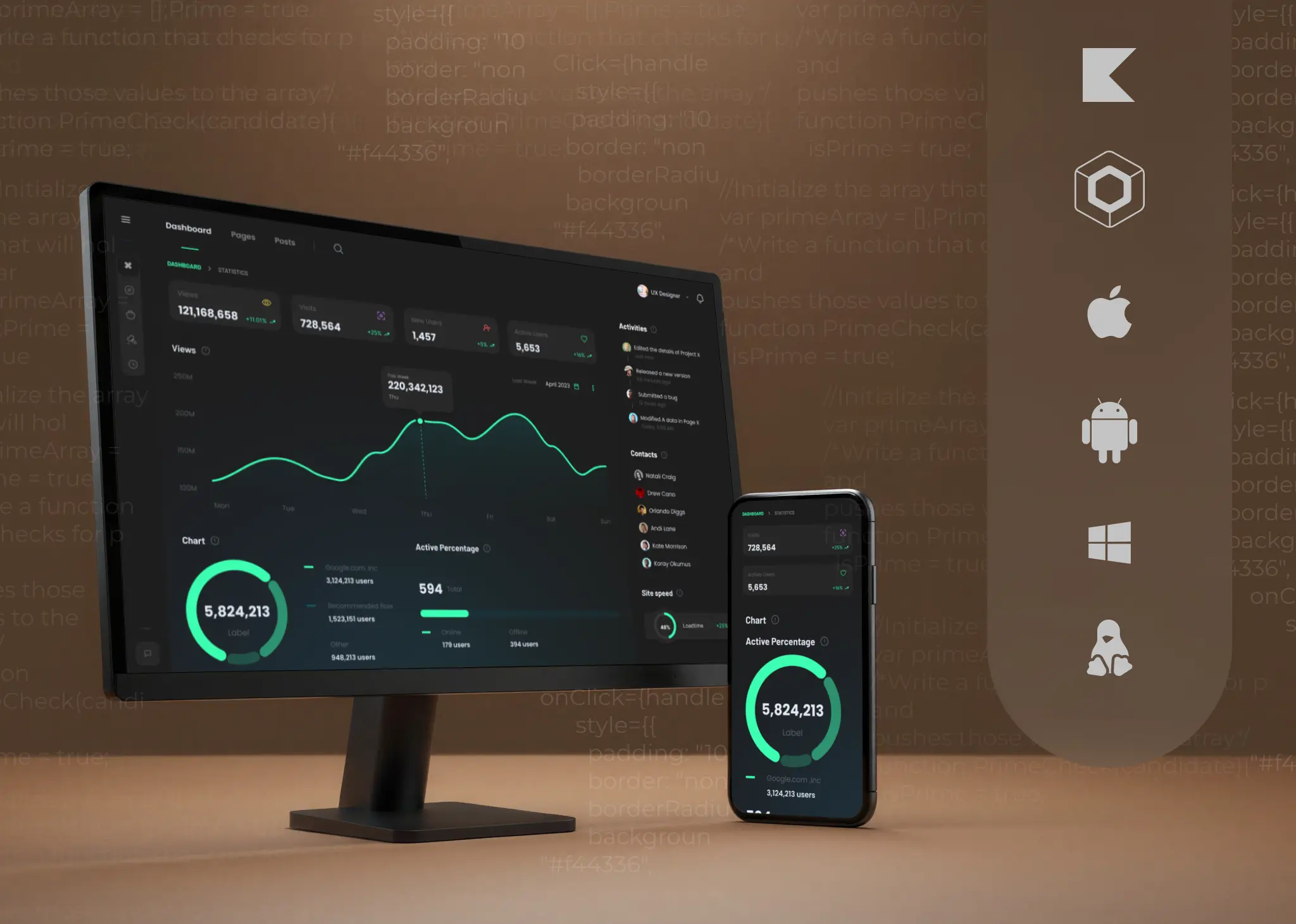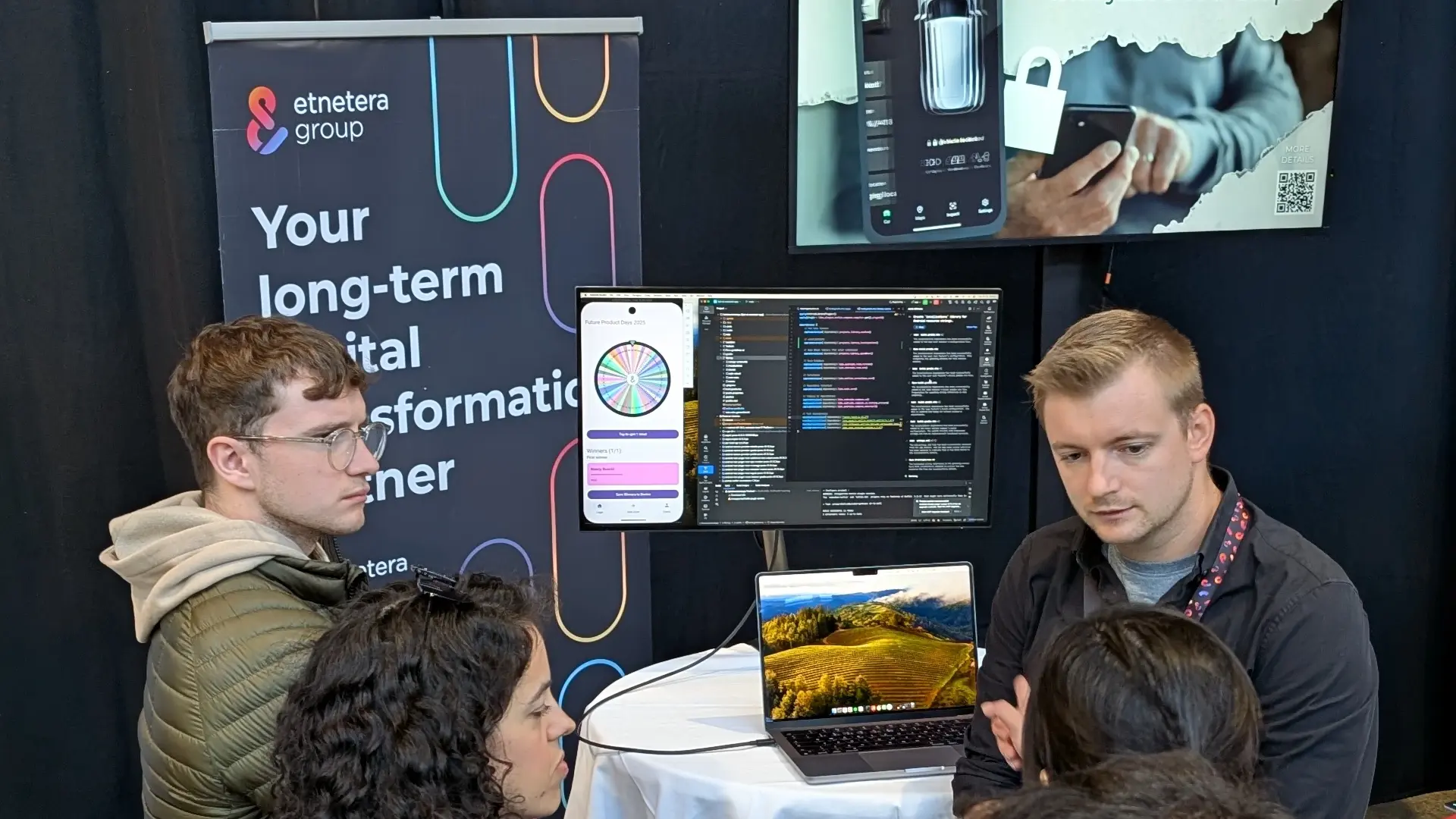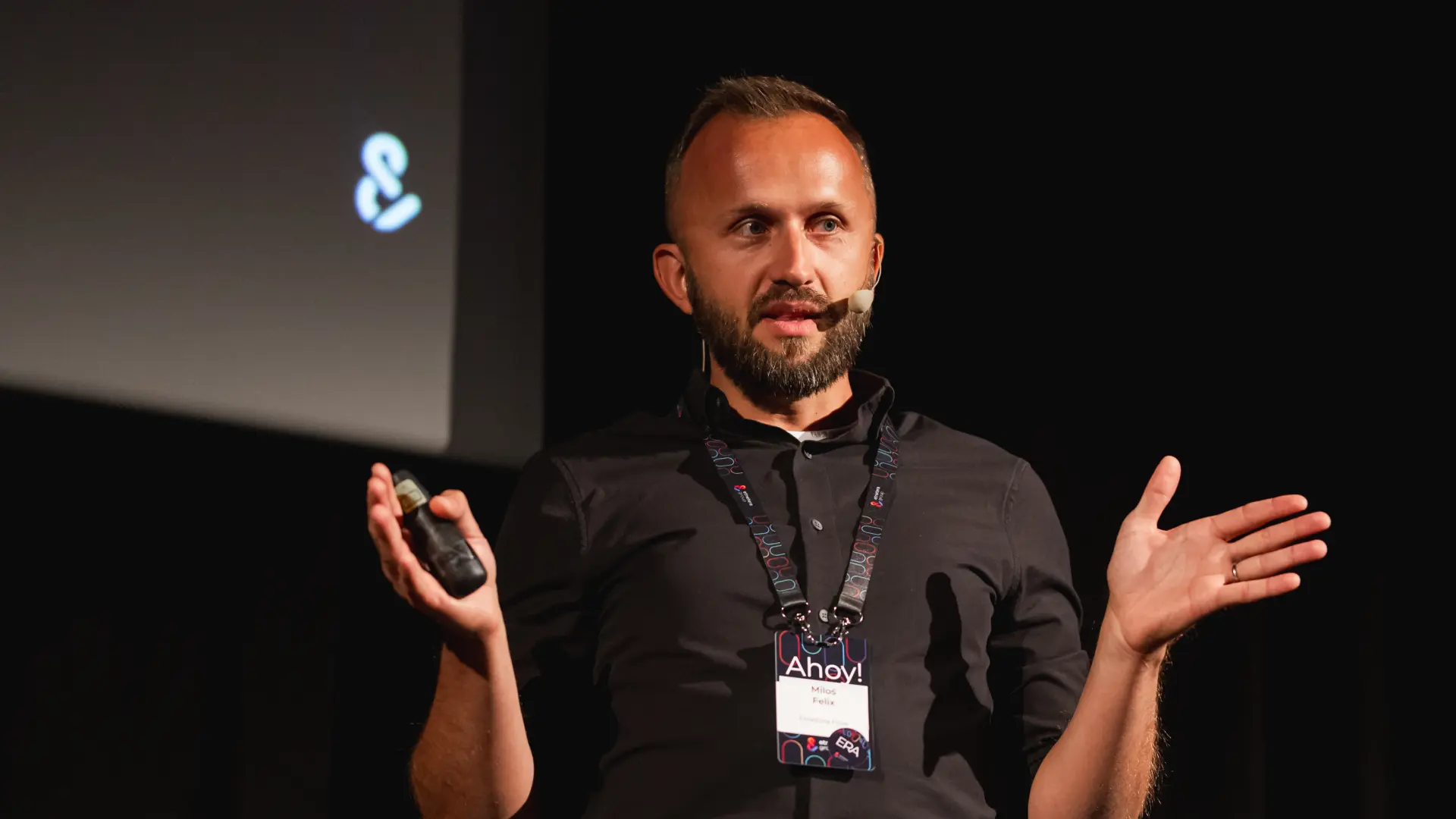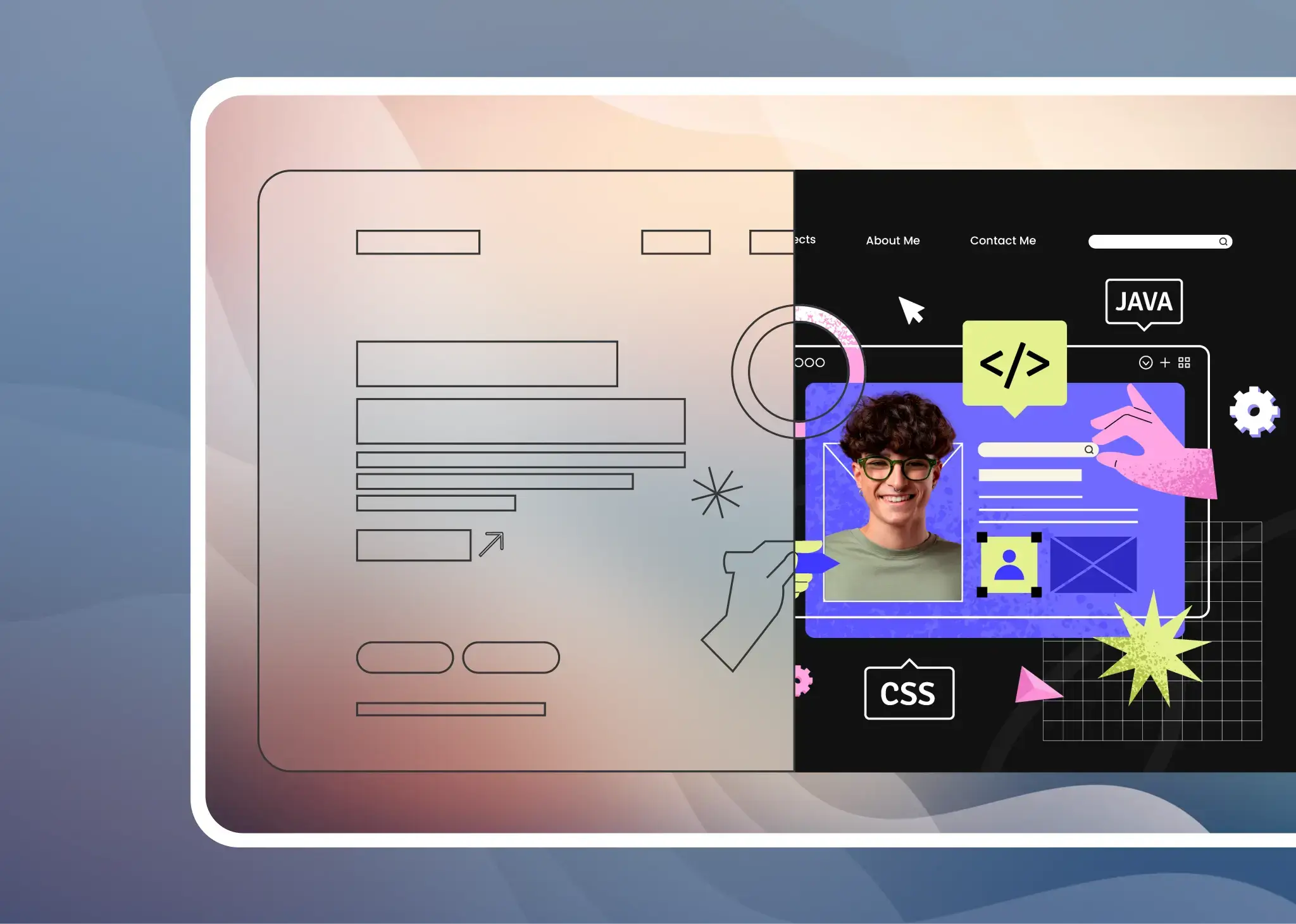Mentors from the iOS faculty of Etnetera Mobile Academy can already consider themselves to be ‘longtimers’, as this is their third year. But this year they had to deal with moving to the online realm, modifying workshops and communication skills training adapted to the new format. How does mentor Petr Urban of the IOS team perceive this year's Mobile Academy and does he see the other Android faculty as competition? Read the interview to find out!
The previous two years of the Academy took place in our offices, now they are online for the first time. How does it work and what did it take to make the online version work well?
One of the basic ideas of the Academy since the first year has been, among other things, to expose students to the technology, process and environment of real development. This is what we are still trying to do, but the difference is that everything is moving to the online environment. However, we have a great advantage in IT in that we are used to adapting frequently to how technology and trends evolve. Even so, the transition to online environment was not easy. But after the first workshops, we can say that we have succeeded. Our lecturer Hana (from komunikacnidovednosti.cz) helped us and prepared us properly for this format when it comes to communication. However, it is important to monitor students' non-verbal communication, to sense when to have a break, and to handle questions in chat and more.
What do you see as the advantage of the Academy being online? I am sure there are a lot of positives.
There are certainly a few advantages. I see a great facilitation in easier recording of individual workshops. It is not a problem to capture the screen with the presentation and the students' reactions at the same time. This was not possible in the offline format. Today, when we solve a specific problem with a student, we can share the student's screen and the solution can be seen in the recording and we don't have to explain the same problem several times. Today's video conferencing software offers enormous possibilities and we try to use them to the maximum to make a long eight-hour workshop as useful, interactive and, if possible, entertaining as possible. For example, we use breakout rooms, various forms of polls and the ability to respond via the software.
Did you have to set any basic rules for the smooth running of the workshop?
They are an essential part of any video conference. For example, having the camera on, raising your hand instead of shouting, and having the microphones muted when you are not talking. These are the absolute basics, but it's nice to use them as a starter. I recommend introducing a rule of ‘Camera On + Comment’ instead of a chat message. It's refreshing, and the person doing the talking can better adapt the speed and direction they're moving in the topic.
What were your biggest concerns about this year's Academy and did those concerns prove true?
The biggest concern was about technology, student interaction in a long workshop and whether we would bore people through the camera. Another thing is the stability of the Internet. You really don't want to get dropped in the middle of a presentation and be kept waiting for several minutes. But we did everything we could and I even called a technician to my house to check if everything was okay. I even had the plan raised and searched for an ethernet cable. Other mentors have done the same. But some prefer to commute to the office on Saturdays.
What I am still worried about is that the offline version offered the opportunity to go for a coffee or a beer with the students, relax and talk about other topics. That's why we invent online introductory get-acquainted games and stuff like that. We have to learn to work with this in the future, not only at the level of the academy - to count on meeting more online and less in person. However, a human approach and sharing similar values with people in the team will always come first at Etnetera. This will not disappear in online environment.

What do you think is going well this year?
I greatly appreciate the enthusiasm for the Academy and the dedication to the preparation and execution by almost the entire iOS team. The main goal for students is to gain experience and get to the starting line of an iOS developer. For us Etnetera people, we have more goals - to find future skilled partners, to move out of our comfortable bubble, to learn how to transfer know-how… Personally, what I see as the most valuable thing for this year’s academy is the fact that we have such a virtual team building activity in the team and we do together what we enjoy doing. Many of us have had the opportunity to see the academy from the student's side, and I see much stronger spirit because of that in this bonding event.
How do you feel about the addition of Android faculty? Do you see it as "competition" or are you excited for it?
I am excited! The guys have fully immersed themselves in the project, giving it 150 percent effort. I had a chance to watch part of their teaching for a while - and I couldn't find a single fault. In fact, I learned a few valuable insights that I'm eager to apply to our iOS program. It’s great that we have been able to pass on our iOS Academy experience to the Android guys, but what is even better is that they always add something new to it. For example, when we put our heads together, we took our "term paper" to a new level.
Do you remember any fuck-up you had to deal with during the workshop?
I was just at the Android workshop and messages started coming into Slack like, "If Míra (one of the mentors) drops out completely, who would take DiffableDataSource?" That made me slightly nervous, and I think the guys who were giving the presentation were even more nervous. It’s because each of the mentors has prepared their own topic and if they had to take over someone else's topic, it could be uncomfortable to answer students' questions about something that one has not studied, even if we have detailed notes on it. Fortunately, Míra came back after a while and handled the presentation with grace.







.webp)

.svg)
.webp)

.webp)




.jpg)
.jpg)
.png)
.avif)

.avif)



























